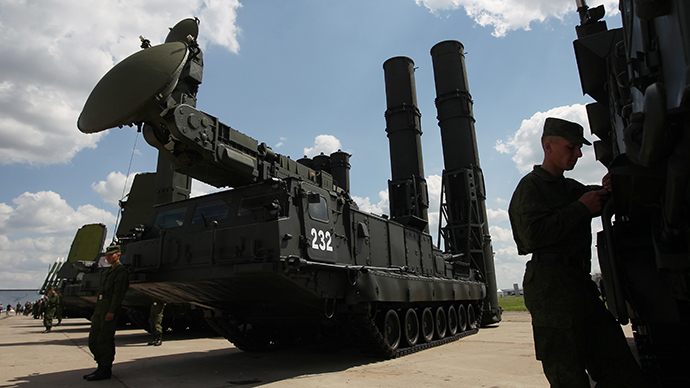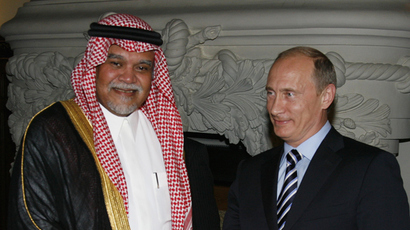Russia won’t supply outstanding S-300s to Syria until mid-2014 - report

Fulfillment of Russia’s contract with Syria to supply S-300 air defense systems have been postponed until at least June 2014, a corporate report indicates. Moscow has been reluctant to deliver the weapons amid the unstable situation in the country.
A glimpse of light on the future of the contract, which caused controversy earlier this year, was shed by an annual report of MMZ Avangard. It’s part of the Almaz-Antey, the producer of the S-300, which is responsible for supplying missiles for the systems.
The report published on the company’s website mentions a letter from another branch of Almaz-Antey informing of a delay in the contract with a foreign customer 760. The code corresponds to Syria, reports the Russian newspaper Vedomosti.
The letter arrived on April 3 and said that Avangard should postpone delivery of the second batch of 48N6E2 missiles under the contract till June 2014. The report also says that the company received advanced payment of almost $7.3 million for the missiles.
Russia and Syria signed a $1 billion contract for four S-300 batteries back in 2011 before the tensions in the Middle-Eastern country escalated into a bloody war.
The contract came into media spotlight in May amid general Western criticism of Russia over supplying arms to the government of Bashar Assad. Some media implied that the systems are about to be deliver and would greatly empower Damascus in its fight against the rebel forces.
Moscow insists that it was not violating any international law with its defense contracts with Syria. Though in June, President Vladimir Putin announced that the S-300 contract is yet to be fulfilled. He reiterated Russia’s position that the systems are of no use against the rebels, but voiced concerns over the balance of military power in the region this supply may cause. The deal was not shelved, however, despite some media reports to the contrary.
The postponement of the shipment is most likely beneficial for both Russia and Syria in the current situation, believes military expert Ruslan Pukhov, because the systems delivered “would certainly be a very strong political irritant.”
“The situation is similar with the Mig-29 jets,” he explained to RT. “Several months ago head of the MiG corporation Sergey Korotkov stated that the company, which is expected to supply four of the 12 MiGs contracted in 2007, but is ready to deliver six. I am almost certain that this delivery will also be postponed.”
“The political support that Syria gets from Russia, China and Iran is much more important and helps Assad more than, say 10 aircraft of several dozen missiles,” Pukhov said.
Russia’s military cooperation with Syria made it target of ill-placed criticism back on June 2012, when then-US State Secretary Hillary Clinton, who accused Moscow of supplying advanced combat helicopters to the Assad government, a move that would “escalate the conflict quite dramatically.”
The helicopters in question were later revealed to be three old Soviet-era aircraft, which Russia was returning to their owner after an overhaul.














